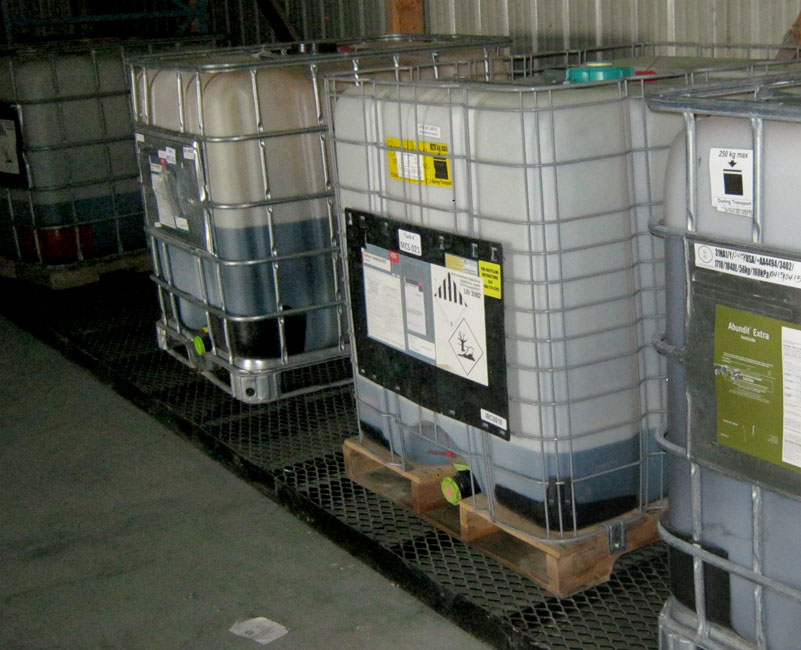Two grants that aim to increase local purchasing in Minnesota Farm to School and Early Care programs are now open for applications through the Minnesota Department of Agriculture (MDA).
Through this round of Agricultural Growth, Research, and Innovation (AGRI) Farm to School and Early Care Grants, school districts and early childhood education (ECE) centers across Minnesota will receive a total of $935,000 to purchase Minnesota-grown and -raised foods for use in federal meal programs. This is the first year that this program is available to ECE centers, in addition to school districts.
“These grants have helped bring more fresh, local foods to Minnesota schools, and we’re excited to now be able to extend this same opportunity to our state’s early childhood education centers,” said MDA Commissioner Thom Petersen. “When schools and ECE centers buy locally grown and raised foods, our students, farmers, and communities all benefit.”
School districts and ECE centers may apply for one of two grants:
- Farm to School and Early Care First Bite Grant: Grants are intended for school districts and ECE centers that have little to no experience with local procurement as part of a Farm to School and Early Care program.
- Farm to School and Early Care Full Tray Grant: Grants are intended for school districts and ECE centers that have some Farm to School and Early Care procurement experience.
The First Bite Grant is intended to be an intentional learning process for the applicant. School districts and ECE centers may apply for a minimum of $2,500 and a maximum of $5,000. There is no match required.
The Full Tray Grant will be awarded to school districts and ECE centers that have experience purchasing Minnesota-grown and -raised products and want to expand their Farm to School and Early Care programs. Applicants may apply for up to $35,000 based on the number of meals served as a part of a federal meal program in October 2022. Grants require a 1:1 match.
In addition to funds for food, applicants for both grant programs may also apply for up to $25,000 for equipment purchases to support their Farm to School and Early Care programs. First Bite and Full Tray Grant applicants must match the equipment portion of their grant on a 1:1 basis. Schools and ECE centers may not apply only to fund equipment purchases.
Grant applications must be submitted by 4 p.m. on Thursday, November 2, 2023. Visit the First Bite Grant and Full Tray Grant webpages for full eligibility and application details.
###
Media Contact
Logan Schumacher, MDA Communications
651-201-6193
Logan.Schumacher@state.mn.us
Minnesota farmers, educational institutions, individuals at educational institutions, and nonprofit organizations interested in researching sustainable agriculture practices and systems can now apply for funding through the Minnesota Department of Agriculture (MDA).
The Agricultural Growth, Research, and Innovation (AGRI) Sustainable Agriculture Demonstration Grant Program funds innovative projects that explore the energy efficiency, environmental benefits, or profitability of sustainable agricultural techniques or systems, from production through marketing. The MDA will award up to $350,000 in grants using a competitive review process.
Applicants may request up to $50,000 per project. The first $25,000 does not need to be matched by the applicants. For requests between $25,000 and $50,000, applicants must provide a dollar-for-dollar match on the amount above $25,000.
Past grants have funded a wide range of projects, such as exploring cover crops and crop rotation; conservation tillage; input reduction strategies; integrated pest management; and alternative energies such as wind, methane, and biomass.
Projects may last two to three years and need to take place on Minnesota farms, and grantees must be willing to share what they learn with others. Grant projects are published annually in the MDA’s Greenbook, which provides a summary of each project along with results, management tips, locations of previous projects, and other resources.
Funding for this program is made available through the AGRI Program, which administers grants to farmers, agribusinesses, schools, and more throughout the state of Minnesota. The AGRI Program exists to advance Minnesota’s agricultural and renewable energy sectors.
Applications will be accepted through 4 p.m. on Thursday, December 7, 2023, and funding will be awarded in early 2024. For more information and application details, visit the AGRI Sustainable Agriculture Demonstration Grant webpage.
###
Media Contact
Logan Schumacher, MDA Communications
651-201-6193
Logan.Schumacher@state.mn.us
Congratulations! You’ve been awarded the AGRI Sustainable Agriculture Demonstration Grant (SustAg).
1. Mini-bulk tanks that contain pesticides must be stored in secondary containment.
2. The capacity of the secondary containment area must be a minimum of 110% (roofed storage) or 125% (unroofed storage) of the largest mini-bulk container in the containment area. Displacement of other tanks must also be calculated as well.
3. Elevating mini-bulk tanks on metal stands or pallets equal to the height of the containment wall will eliminate any displacement volume and will ease access to mini-bulks in the containment area.
4. All mini-bulk tanks must be placed a minimum of one foot from the secondary containment wall or curb.
5. The secondary containment may not contain a drain or other similar opening. If such an opening exists it must be permanently plugged to prevent an incident.


